The Lost Art Of Asking Better Questions.
The Lost Art of Asking Better Questions.
Part 1.The Russell Quirk Story on Property Industry Eye.
Q. How would you introduce yourself?
Q. Where and how did it all start?
Q. Were there any online estate agents when you started eMoov?
Q. Did you take the criticism personally?
"Those people that have never met me probably think I'm a dick, that's fine, Those that have met me realize that I'm much more tongue-in-cheek, sarcastic and probably all-right."
Twenty minutes.
Four soft questions from an interviewer obviously in awe of the subject and prepared to allow him to ramble on with anecdotes, chronologically from the 70's to more recently.
But the lost art of better questions is in asking a follow-up question. Not to allow a practiced P.R professional free reign to spin the story. It does neither a favor.
"Did you take the criticism personally?"
"Those that have met me realize that I'm much more tongue-in-cheek, sarcastic..."
Here was a perfect opportunity to ask the follow-up questions:
"Describe your character, then! Other than sarcastic, what other values can you share with listeners. Let's hear who is the real Russell Quirk."
Of that, nothing! From either side.
Moving swiftly on, lest he reveal something about himself that could make us like him less. Or even, more.
Twenty minutes and all I got from it was that Russell considers himself "sarcastic, opinionated" and addicted to column inches, either for himself or a client.
Story arc is one half. Character arc is the other. We got the first and hardly any of the second.
Part 2.
"Back to 2010, did you think eMoov would become what it became? - it's good to hear about the struggles."
"eMoov started very slowly. It took 12 months to get any traction. I was doing ad-words, P.R, trying to turbo-charge S.E.O. Running a traditional agency at the same time."
"What were some of the milestones at eMoov?
"Did you have any negatives or positives of being so vocal?"
" I was the first one in the sector to go out and raise money. I had this realization that if this was going to go anywhere, I had to raise money. I talked some people I knew about venture capital. Long story short, I did a deal with James Caan/Faisal Butt and that was the start of what I term "the hamster wheel" - raise money, spend it to grow......I raised £29 million over 9 rounds, but spent half my time on that. It was very distracting. I didn't have a CEO, didn't have a co-founder, didn't have a partner....that was one of the negatives."
Again, no follow-up questions.
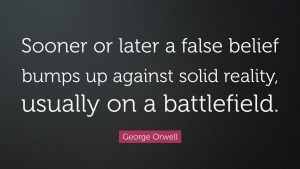
Nothing about why Russell didn't have a CEO, co-founder, or partner to help him navigate the pitfalls of raising finance. That in itself is an admirable achievement, raising £29 million, without the apparent team to support scaling so rapidly. Nothing about why he, not the investors, deemed it necessary to scale so quickly.
Contrast the business model with that of Russell Brunson, founder of Click Funnels, who introduces each podcast with the tagline:
"So the big question is this: How are entrepreneurs like us, who didn't cheat and take on venture capital, who are spending money from our own pockets, how do we spend our money that lets us get our products, services and the things we believe in out to the world and yet still remain profitable? That was the question and this podcast will give you the answers."
A digital, online service. Much like eMoov. But without the outside investment. Profitable and with a hundred million dollar turnover.
What's the rush for other people's money?
We don't wait long to find out.
"Whilst I was passionate about eMoov, it was always about the end-game and the exit strategy, whether that was selling it to Foxtons, a trade sale, or a private equity firm coming in, or a listing on the Stock exchange, which is what I tried to pull off in 2018, which I wasn't able to."
Missionary, or mercenary, Russell?
Show me the money.
Show - Me - The - Money.
And my key takeaway from the whole series was this little insight, when asked what advice he would give to others in a similar situation.
" I wouldn't seek to go too fast, because what you also end up with is you throw a lot of money down the marketing funnel and waste a lot of it because you're constantly looking to grow, improve and test and you just lose phenomenal amounts of money that you give to Facebook, Google and T.V companies."
It's a marketing strategy that PurpleBricks uses.
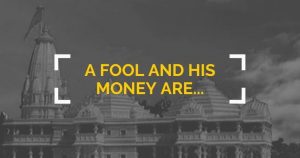
Increased visibility. Greater brand recognition. More 'leads'.
But, as with PurpleBricks, "phenomenal amounts of money that you give to Facebook, Google and T.V companies" doesn't work - if there's no underlying message. And if profits matter.
"Save yourself Commisery" was the best that PurpleBricks could come up with.
"We're starting a movement...an emoovement" was Russell's lame shot.
A series of expensive T.V ads that created awareness, but little in the way of engagement with the consumer.
Ads that get most viewers quickly reaching for the remote when the accompanying show was on-demand. Or, a dash to the kitchen to make a cuppa whilst the ads are live.
Paul Graham knows a thing or two about investing in start-ups through his investment vehicle Y-Combinator.
"When I talk to a startup that's been operating for more than 8 or 9 months, the first thing I want to know is almost always the same. Assuming their expenses remain constant and their revenue growth is what it has been over the last several months, do they make it to profitability on the money they have left? Or, to put it more dramatically, by default do they live or die?"
There's a reason that founders don't ask themselves whether they're default alive or default dead.: they assume it will be easy to raise more money. But that assumption is often false, and worse still, the more you depend on it, the falser it becomes.
In any case, growing fast versus operating cheaply is far from the sharp dichotomy many founders assume it to be. In practice, there is surprisingly little connection between how much a startup spends and how fast it grows. When a startup grows fast, it's usually because the product hit a nerve...When a startup spends a lot, it is usually because the product is expensive to develop or sell, or simply because they're wasteful."
So my question to Russell would have been:
" Was eMoov perceived as a service that "hit a nerve?" Was the revenue a result of the innovative service or simply a case of buying market share from traditional agencies, with other people's money?"
If the latter, that well might be considered wasteful.
And I think that's why the whole online strategy failed. Not because there was no demand - but because there was no radical differentiation, no meaningful message and no gifted leader with a vision, other than monetary.
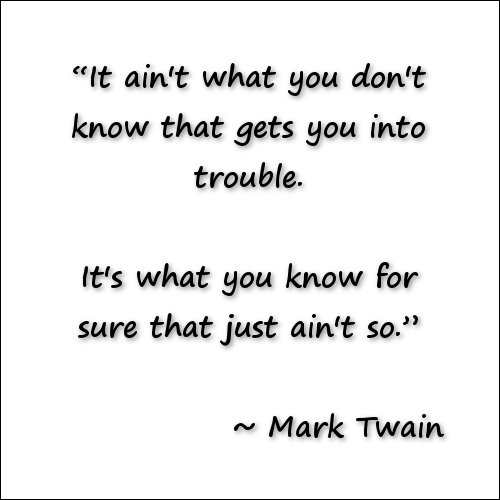
My next question, though, would have been why did you seek and obtain £2.6 million Crowdcube investment from inexperienced investors at a time when cash was rapidly running out? Why did he not tell those investors that his company was losing £3 million a month just months before its collapse? The answer to which would reveal much of the character of the subject.
Part 3.
"Was it difficult to 'bounce back?"
"What lessons did you learn from that rapid growth?
Then followed an explanation of the move into P.R that followed the demise of eMoov.
"those ideas backed up by data and good writing turning into what is now something between 600-700 pieces of coverage for those clients every month. We have clients who get more coverage now, than we got at eMoov."
No follow-up question!!!
For example, how effective are those 600- 700 pieces of coverage? Do they provide a measurable R.O.I, or are they simply vanity projects?
As regular subscribers will know, I hold P.R in low esteem . Why Real Story Trumps Propaganda Every Time.
By its very definition, it seeks to spin certain facts into something they're not. Putting a gloss on events and circumstance in order to garner column inches. Attention seeking, but not engaging.
Witness the spin that emerges regarding his Keller Williams Essex agency.
"The thing that will scale is the Keller Williams business. Both in Essex and nationally. I think KW will be the biggest estate agency in the UK. We are adding 50 agents a month and will get to something like 500 agents. Show me another agency that is adding 50 agents a month!"
There is no other real estate agency, worldwide, that I dislike more than Keller Williams for reasons that have been well-documented. An agency that sets store in how many agents it has - rather than how good those agents are.
And this cunning strategy is demonstrated by the drive for KW UK to recruit people with little or no experience. Collecting from them a monthly fee, whilst at the same time selling them "world-class training" that is anything but.
Selling homes is just the icing on the cake for those in charge.
What results from this is a dumbing down of the estate agency profession, since impertinent door-knocking and intrusive cold-calling are at the very heart of their systems.
No questions from the hapless and gushing Jonny Palmer.
Instead, " With all the support and backing that you can get from KW, the risk is a lot less than it was."
A timely lead into five minutes of P.R for the paid "training" model.
Evidenced by the fact that there are apparently "10,000 KW millionaires in the U.S."
The final question to Russell.
"What would you tell your younger self?"
"Embrace failure."
A final few minutes on the benefits of failure.
But missing one important point:
It's not that you fail - it's how you acted when failing.
Was there honesty and transparency? Did investors know the risks? Was there compassion for the 140 employees?
Or was P.R used to spin the truth into something relative?
There's a subtle irony here that in Russell Quirk, we have a man of words. Intelligent, energetic and enthusiastic - yet unable to find the words that convince a receptive public that his vision had merit. Content to let technology and low prices do the work. Whilst little appreciating a total lack of the one thing that does convince:
That's the problem all transactional estate agents face.
They are unable to make a homeowner 'feel' anything.
No doubt, permanently pleased with himself for this free exposure on Property Industry Eye, solidifying his claim to be an "industry expert" and for having the opportunity to push the supposed merits of his PR company and Essex agency, The Russel Quirk Story suffered a failure to launch.
On further investigation, the problem was attributed to The Lost Art of Asking Better Questions.
A shame, really, because I find the man most interesting. As The Times Sports reporter, David Walsh, said of US Masters Champion Patrick Reed:
"An imperfect man with a troubled past. Perhaps like the stray dog that turns up expectedly, undernourished and looking for love, he was hard to ignore. That is one part of it. The other is the way he plays the game and the way he refuses to play the game."
In golfer Patrick Reed, PR is the game he refuses to play. In Russell Quirk, it's the only game in town.
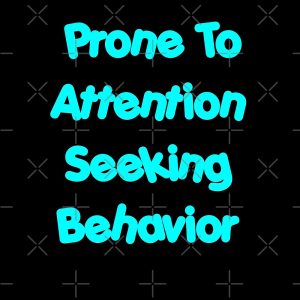
Thanks for reading this far. Slightly longer piece than usual, but The Lost Art of Asking Better Questions applies as much to listing appraisals as it does to contrived interviews.
If you have comments, or questions, of course I'd love to hear them. Good, or bad, I reply to all.
Chris.
The post The Lost Art Of Asking Better Questions. appeared first on And so the story began.
When you subscribe to the blog, we will send you an e-mail when there are new updates on the site so you wouldn't miss them.

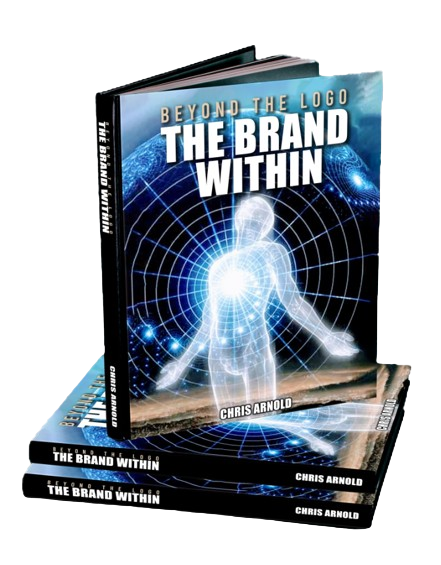
Comments